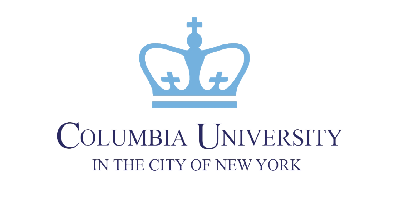|
The Department of Radiation Oncology of Columbia University Irving Medical Center is inviting applications for a Postdoctoral Research Scientist to work on developing scalable machine learning/deep learning approaches with applications in multi-modality medical imaging and adaptive radiotherapy. The Postdoctoral Research Scientist will join a dynamic team of data scientists and clinicians and participate in unique opportunities to apply machine learning for both scientific discovery and direct impact on patient care in a clinical setting. Responsibilities:
- Perform research and development of novel scalable machine learning algorithms for image-guided radiation therapy and outcome prediction and decision using multi-modal health data.
- Work under the supervision of the principal investigator and collaborate with other researchers, medical physicists, clinicians, postdoc fellows, and students to discuss, develop and implement research agenda.
- Write, debug and maintain high-quality research code, and help deploy research results (if applicable) in clinical environment.
- Present work at scientific conferences and publish high qualify papers.
The successful candidate will be offered:
- Comprehensive training in machine learning, especially deep learning, to build and optimize AI models for various tasks in medical imaging.
- Opportunities to work on some intrinsic challenges in applying AI in medical domain.
- Strong collaboration with researchers and clinicians from diverse fields across different departments/institutions in Columbia University.
- Competitive salary, excellent health plan and multiple other benefits.
- Visa support for qualified international candidates.
Minimum Education Qualifications
- A Ph.D. or equivalent degree in Medical Physics, Physics, Biomedical Engineering, Electrical Engineering, Computer Science or other quantitative science-related fields.
Other Preferred Qualifications
- Good programming skills using languages such as python, Matlab, C++ or C#; Expertise with deep learning frameworks (e.g., Pytorch, Tensorflow, Keres). Familiar with main DL architectures (CNNs, Transformers) and large language models. Experience with reinforcement learning and/or federated learning strongly preferred.
- Background in machine learning, medical imaging and optimization methods, ideally with demonstrated experience in deep learning in medical image analysis (image segmentation/registration/synthesis), medical image reconstruction, computer-aided cancer detection/diagnosis, radiomics and automated treatment planning in radiotherapy.
- At least one first author research publication in a related subject.
- Strong communication skills and excellent scientific writing ability.
- Highly motivated and independent.
- The ability to work under interdisciplinary settings.
Columbia University is an Equal Opportunity Employer / Disability / Veteran Pay Transparency Disclosure The salary of the finalist selected for this role will be set based on a variety of factors, including but not limited to departmental budgets, qualifications, experience, education, licenses, specialty, and training. The above hiring range represents the University's good faith and reasonable estimate of the range of possible compensation at the time of posting.
|
 Columbia University
Columbia University

 Aug 13, 2025
Aug 13, 2025 
